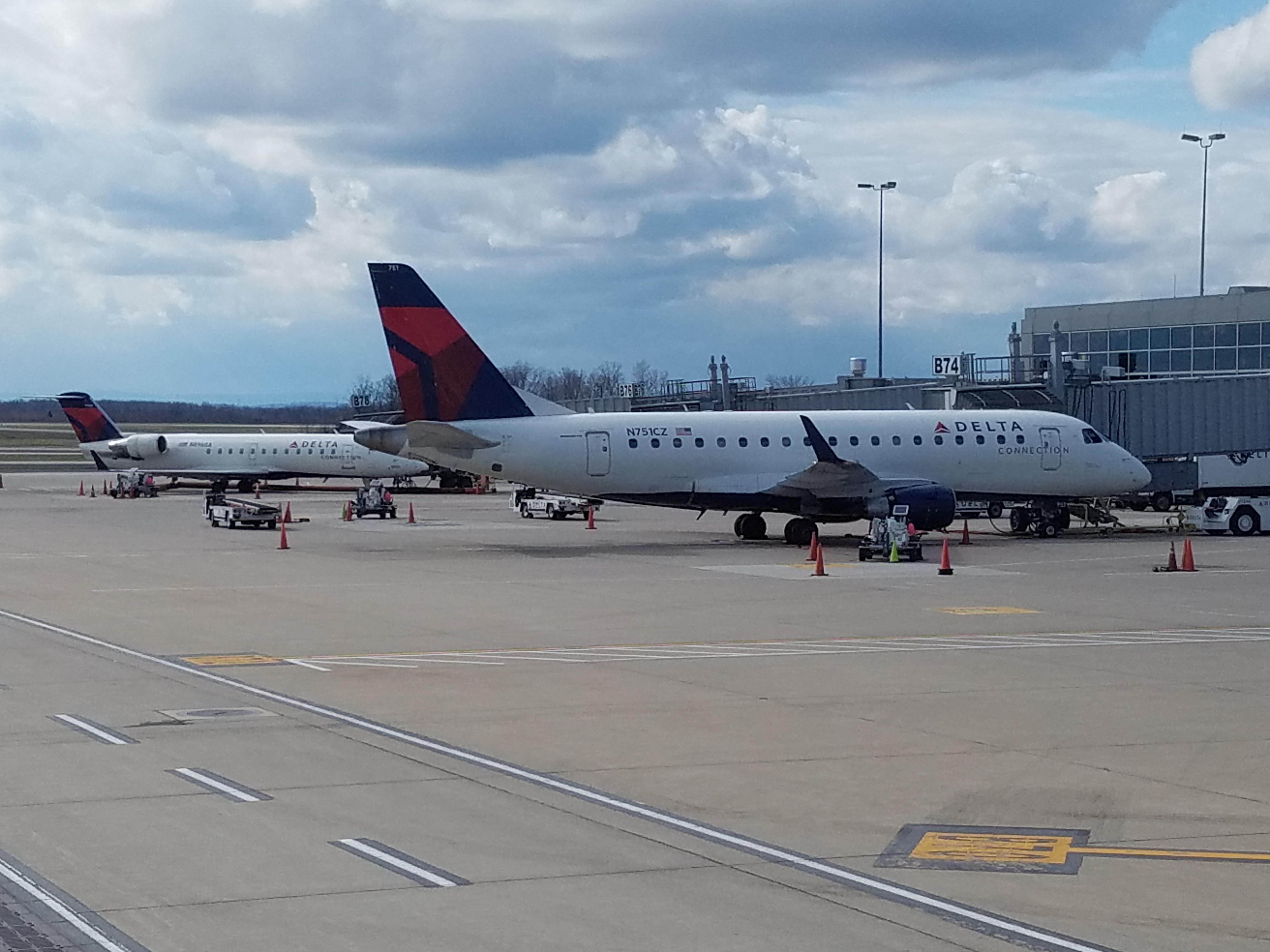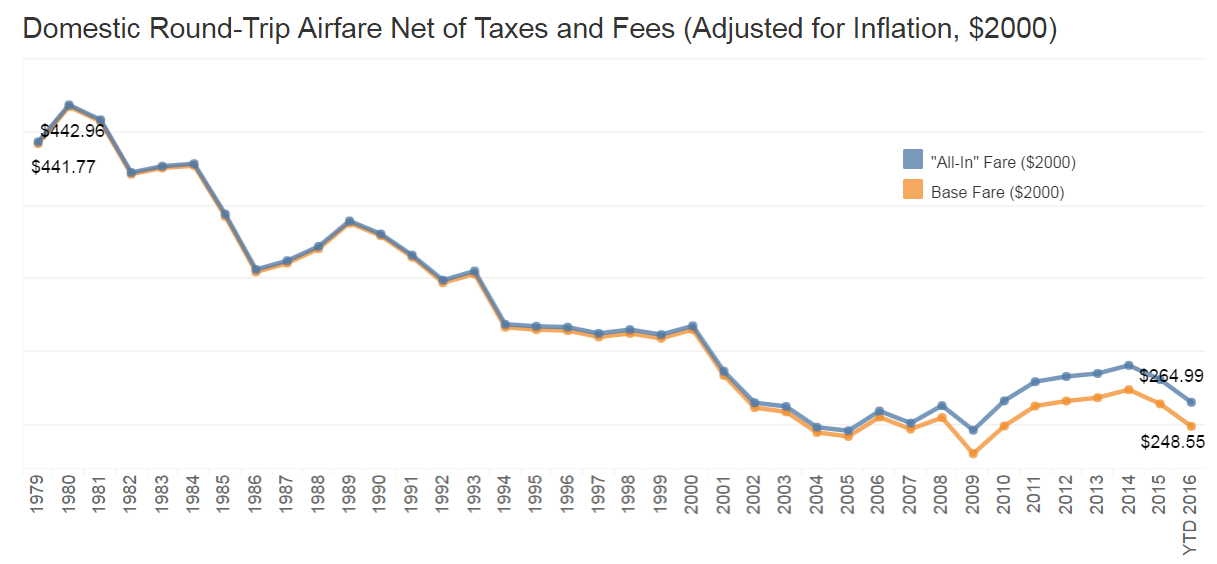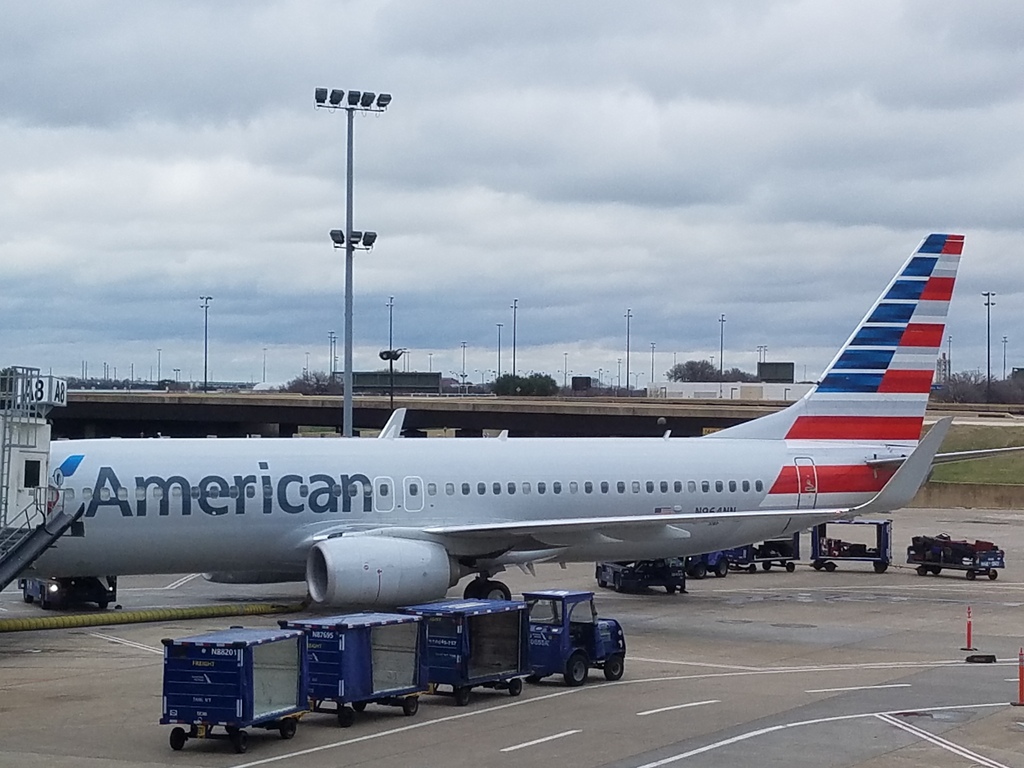Robert Kuttner has been beating the drum seeking to re-regulate the airline industry for years. He takes whatever the latest news story is as a hook for his cause. In 2009 he argued that safety meant we needed to undo deregulation even though airlines are safer than they’ve ever been, and deregulation didn’t take the government out of overseeing airline safety at all.
Now he’s back in the New York Times completely misrepresenting the industry he wants to regulate using the terrible story of the doctor dragged off a United flight to argue that it’s again time to re-regulate the industry with solutions that he even admits would ban low prices and force airlines to travel with empty seats.

However he either completely misunderstands the industry he’s writing about, or he’s being disingenuous, his proposals make the very problems he lays out worse and he completely misconstrues his evidence along the way.
Kuttner says the Chairman of the Civil Aeronautics Board who backed deregulation, Alfred Kahn, got it all wrong. He never mentions it was President Jimmy Carter who signed the legislation that was championed by Senator Ted Kennedy — as a pro-consumer and anti-government backed cartel piece of legislation.
Airline deregulation ended the government dictating which airlines flew where and at what price. The government acted to ensure airlines were profitable, and didn’t compete too much against each other. That’s what Kuttner actually wants to return to and he doesn’t even hide it.
Deregulation Really Did Lower Prices
Kuttner claims “Prices actually dropped at a faster rate in the decades before deregulation than afterward.”
Inflation-adjusted airfares including checked bag and change fees fell from $443 to $265 (in 2000 constant dollars).

The underlying basis for Kuttner’s claim that about the rate at which airfares were falling from a much higher base before deregulation (aside from, perhaps that there’s only so low fares can go) is a 2007 study published in the Journal of the Transportation Research Forum which argues fares became more dispersed after deregulation — premium fares went up and discount fares went down, which isn’t an argument Kuttner wants to make.
This is also a claim which may have been true a decade ago when the study was conducted but is no longer true as fares have compressed (premium fares are now sold at a discount, which is why there are fewer upgrades to go around).
Let’s Throw the Kitchen Sink of Complaints at Airlines, Because Mergers
Kuttner calls today’s airlines a “cartel,” but I don’t think Kuttner knows what cartel means. It’s a collusive arrangement to maintaining high prices (or increase price) and restrict competition. The federal government investigated airline price fixing and found none.
While I do not like airline consolidation,
- It’s not reasonable to call four to six major competitors — more than exist in most industries — uncompetitive.
- Kuttner cites hotels and rental cars as better models of competition, but there are more major airline competitors than major chains in either hotels or cars in the U.S. And by the way hotels and car rental companies overbook, too.
- The are 4 largest domestic airlines — Delta, American, Southwest, and United — and both Alaska and JetBlue have over 200 planes. Meanwhile prices in many markets are actually being set by the smaller ultra low cost carriers like Spirit and Frontier.
- In the rental car space there are 3 major players: Enterprise (which owns National and Alamo), Hertz (which owns Thrifty and Dollar), and Avis (which owns Budget).
- There are also just 3 largest hotel players: Marriott (which owns Starwood), Hilton, and IHG. (Hyatt is only about 1/7th the average size here.)
- He calls out the Reagan administration for approving airline mergers, while ignoring those approved under Democratic administrations, and writes about them as though they were political choices rather than because those mergers were legal.
- Most major airlines went through bankruptcies prior to consolidation over the past dozen years, and all lost huge sums of money, at least from the perspective of the time that Delta/Northwest and United/Continental mergers were approved that consolidation saved jobs and preserved rather limited competition.
Kuttner’s lack of understanding of the issue is betrayed by the original version of his article which “misstated the merger history of USAir. It merged into American Airlines, not into United.”
Or Is It Airline Hubs That Are Bad?
Kuttner seems to simply not understand the airline industry at all, making claims like because of hubs “[p]assengers waste time and often miss connections, while airlines waste fuel.”
- Rather than reducing competition as Kuttner claims, hubs mean that there are more ways to get from any two points in the country on different airlines. You can go from most cities on the East Coast to most on the West Coast via Dallas or Houston or Chicago or Atlanta or Minneapolis or Denver.
- Hubs make it possible to consolidate traffic from small cities through a gateway, it’s how you support as many flights as exist in and out of small cities.
- And rather than ‘wasting time’ sitting around for a once a day flight or re-arranging business meetings to ensure you make that flight, a multitide of hubs means you can leave througout the day and arrive in most places whenever you wish.

Disingenuous About Airline Overbooking
Kuttner completely misrepresents the airline overbooking case that went to the Supreme Court, Nader v. Allegheny Airlines.
Ralph Nader sued and the case went all the way to the Supreme Court.
The high Court, in a 9-0 ruling, held that if a passenger had a confirmed ticket, the airline was committing a fraudulent act by bumping him. (Allegheny, fittingly, became USAir, which was merged into American.)
The Supreme Court did not rule that bumping was fraudulent. In fact they explained clearly the reasons for overbooking. They ruled that the Federal Aviation Act of 1958 did not preclude a private action against an airline for overbooking, and that a litigant did not have to wait for the Civil Aeronautics Board to express an opinion about the incident to do so. Period.
Here’s how the Supreme Court’s decision described overbooking in 1976:
[O]verbooking is a common industry practice, designed to ensure that each flight leaves with as few empty seats as possible despite the large number of “no-shows” — reservation-holding passengers who do not appear at flight time.
By the use of statistical studies of no-show patterns on specific flights, the airlines attempt to predict the appropriate number of reservations necessary to fill each flight. In this way, they attempt to ensure the most efficient use of aircraft while preserving a flexible booking system that permits passengers to cancel and change reservations without notice or penalty.
At times, the practice of overbooking results in oversales, which occur when more reservation-holding passengers than can be accommodated actually appear to board the flight. When this occurs, some passengers must be denied boarding (“bumped”).
The chance that any particular passenger will be bumped is so negligible that few prospective passengers aware of the possibility would give it a second thought.
Nader didn’t even claim overbooking or bumping was fraudulent, a key argument was the airline’s lack of notice about the potential to overbook and his other primary argument was that Allegheny had failed to follow its own policy for prioritizing passengers.
Note crucially that involuntary denied boardings are down about 70% since deregulation. However pointing to the Nader case, which was about the ability to sue the airlines, underscores a failure of government regulation — both because it was about the failures of regulatoin in the 1970s, and because government regulation protects airlines from suit for much of their actions other than violation of its actual contract of carriage today.
Solutions That Make Air Travel Worse For Most
Here are Kuttner’s proposed solutions:
Leaving a few empty seats would increase the system’s efficiency overall.
Also, we need rules limiting penalties for changing flights. In life, it’s normal for plans to sometimes change.
He wants more empty seats and lower change fees. Both of those, as the Supreme Court observed in the case he reveres, are what create the need for overbooking in the first place.
Fewer passengers mean a higher cost per passenger. Over time that means higher prices. That’s great for people willing to pay more and who can afford it. It’s not great for less affluent travelers.
Kuttner longs for the regulated era when fewer people could afford to fly. Travel by the unwashed masses appears to be an affront to his values. In fact, he wants lower fares for last minute business travelers and higher fares for vacationers!
It makes no sense to allow airlines to charge an astronomical fare just because a flight is nearly full, and a dirt-cheap fare for an advance booking.
Unbelievably, his model for what he wants the airlines to look like is Amtrak, the government chartered monopoly that consistently loses money on nearly all its routes and operates with abysmal on time performance.
Would rules like these destroy the airlines’ business model? Ask Amtrak, which hauls three times the passengers between New York and Washington as all airlines combined, and doesn’t punish you for canceling a ticket.
He apparently doesn’t even know Amtrak’s refund policy.
Amtrak refund policy changed August 15, 2016
As a result of the new policy, the Refund Fee has changed from 10% to 20%. Reserved Coach or Acela Business now require cancellation 48 hours prior to departure for a full refund instead of the current 24 hours. Tour Passes now require cancellation at least two (2) days prior to scheduled departure of the initial trip for an 80 percent refund.
The new policy affects both existing reservations already made and all new reservations as of August 15, 2016.
Let’s Really Fix the Airlines
People hate airlines, that’s always been true. Airline food used to be awful even when it was free (before it was free again on some routes). Airlines don’t earn big profits relative to their capital investments.
I don’t think consumers are better off than they were a decade ago in all ways (though inflight entertainment is better and we’ve now got internet and better business class seats), although the state of the airline industry at the time wasn’t sustainable either.
The airline industry is very tough, in part because so much of their business is dictated for them — by government-owned airports, government-run security, government-managed air traffic control — is it any wonder we experience air travel like going to the DMV?
Since 9/11 the security mindset has made customer service even worse, as if such a thing was even imaginable in the past. Airlines turn over customer service issues to law enforcement, which is what gave us the passenger being dragged off the United flight.
What you do to address is matters because it determines whether things get better or get even worse again.

The airline industry isn’t as good or as competitive as it could be, far from Delta, United, and American’s call to protect them from having to compete with flight options and low prices from Emirates, Etihad, and Qatar a simple start would be to make competition legal by allowing foreign ownership of US carriers. Let Singapore Airlines and Ryanair compete with United and Delta.
CEO Oscar Munoz says his United is a ‘real airline’ while Emirates, Etihad, and Qatar aren’t. I’d bet most consumers would love to fly domestically on any of those three instead of Munoz’s carrier or those of his US legacy peers.
(HT: Benjamin G.)


I think everyone should have read Hard Landing before discussing their “solutions” as an expert of air travel. Thanks for the recommendation, it’s a great read!
The government investigated and found there was no price-fixing among airlines. hahahahahahhahaha
We don’t need more airline regulation (except for the frequent-flyer program fraud), we need more protections to ensure that free enterprise doesn’t become monopolies which kill competition and also lead to higher prices and less efficiency. Free market protection.
@Justin B – glad you enjoyed it, even 20 years later it’s still the best business history of the industry IMHO
Your comparison to hotels is really quite disingenuous — the number of national hotel chains is essentially irrelevant. What matters is the number of competitors in any given market, and even in small towns there’s a great deal of competition in the hotel market (moreover, because of franchising, even hotels that are part of the same nationwide chain are often actually competitors).
The broader economic point, of course, is that hotels naturally present a fairly classic setting for a competitive market. Barriers to entry are relatively low and there are no natural returns to scale. Loyalty programs may create some small returns to scale, but these are minor.
In contrast, barriers to entry are enormous for airlines, both for inherent reasons (the great expense of buying jets and establishing a route network) and for regulatory ones. Returns to scale are not outrageous but are certainly higher than in hotels when we consider route networks.
That is, if the Hilton hotel in my hometown is charging outsize prices (or delivering abysmal service for the prices it charges), it’s fairly easy for me to open my own hotel and compete. I might even compete by opening a Doubletree franchise within the same national chain, but I maintain the pricing power and there’s no doubt that we would be competitors. If United is charging an outsize fare to fly from my hometown to Chicago, it’s very difficult and costly for me to establish a competing route. And even if I can, my route will be less attractive because I can’t offer any connections to passengers once they reach Chicago on my flight. These are just different industries.
Kuttner is an economic ignoramus.
A left wing journalist at NYT twists the facts to support his or her own subjective viewpoints? And blames a Republican? Shocking!!!
The airline industry is an oligopoly with little product differentiation (except for a few C/F customers) and executives have repeatedly proved that they are incompetent (hence the numerous bankruptcies over the last 4 decades). The solution is not price controls, but rather minimum standards for service. This should not be so objectionable as DOT already provides minimum standards for safety, work hours, pricing disclosures, etc. A few more will simply set the bar at an acceptable level since the airlines seem unable to control themselves in the race to the bottom. I would start with minimum seat width & pitch (maybe add an extra wide section), increase min. comp for VDB/IDB/mechanical canc. (look to EU for guidance) and more transparent pricing of add-on fees so travelers can make an informed decision. Would also add FF program disclosure requirements on seat inventory release dates and quantities.
Joe has a point with hotels, but overall, nicely written take-down Gary
Who wastes time by reading NYT?
You have already demonstrated your own incompetence in the matter of regulation when you claimed that forbidding airlines from inprisoning citizens at will would be harmful, and lobbied hard against the tarmac delay rule.
Based on your broken track record, I would believe the NYT is more accurate than you are.
@Jack — the data on the tarmac delay rule is that it clearly led to increased cancellations and delays overall in the two years that followed implementation but hasn’t been as clear since that time. I did not ‘lobby hard’, I did not file a comment with DOT on that rule or speak to anyone there about it (I’ve filed regulatory comments on a couple of issues in the past two and a half years)
So, Kuttner’s mantra is “drain the plane”…of the peasants.
What a wonderful fellow.
Gary-
To be clear, do you still support government enforcement of mistake fare rules?
@Sam I think customers ought to be able to sue including using common law ‘good faith and fair dealing’ principles as a cause of action, which has been pre-empted be the Airline Deregulation Act. Absent that, we’re left with nothing but DOT regulation so I do think DOT has a role here.
I flesh out my thoughts on what that ought to be in this post from 2 years ago:
http://viewfromthewing.com/2015/04/30/a-modest-proposal-for-how-airlines-should-be-required-to-handle-mistake-fares/
Why do we restrict foreign ownership in airlines?
@Rahul – to protect US airlines from competition